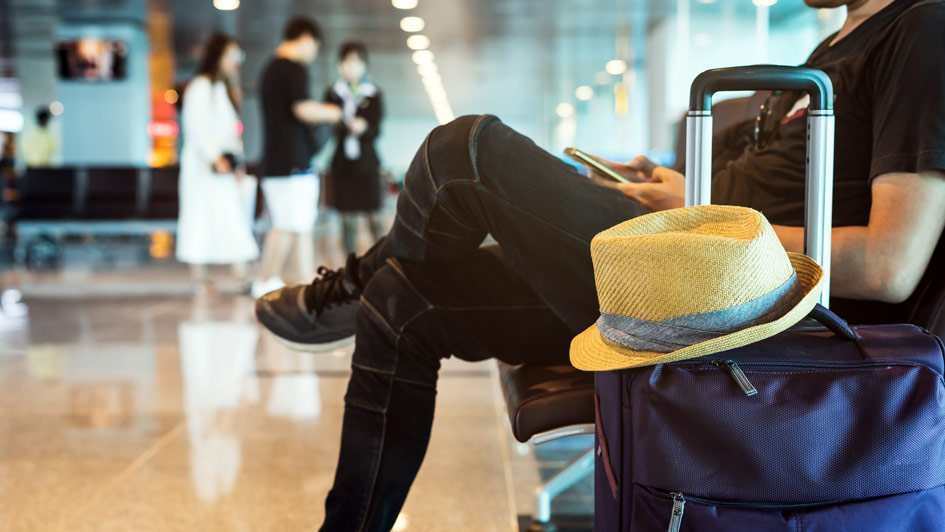
Between a tropical vacation or a long trip for work, leaving home means making plans for your heating and cooling system. You won’t be using it while you’re away, so you can adjust the temperature as appropriate to conserve your energy use. Simultaneously, you don’t want to just turn it off for the entire duration of your trip.
For the most part, it’s better to leave your HVAC system going and just raise or lower depending on the time of year. That way you can reduce energy costs without having to worry about returning to an uncomfortable home. We’ll review why you should avoid turning your HVAC system off as well as the best thermostat settings for various times of year.
This Is Why You Don't Leave Your Thermostat on Hold
While you might be inclined to shut your HVAC system down before a trip, this will sometimes end up causing annoying problems by the time you get back. This is notably true if the weather will be severely hot or cold while you’re out of town.
For example, switching the HVAC system off in the summer can cause very high humidity. Not only will your home feel gross when you have returned, but it could have also stimulated mold/mildew growth or pest infestations.
And over the winter, not using the furnace will sometimes lead to pipes freezing or even bursting. It’s never fun to get home from a nice trip only to come across substantial water damage close to a broken pipe.
Energy-Efficient Thermostat Settings While at Work
You can adjust the temperature even when you're just going to work. Since you’re not home for around 8 hours or so, it doesn’t make sense to keep an empty home the same temperature as when you're home. As a general rule, it’s suggested to adjust the thermostat by 5 degrees or more. This means that if you prefer a comfortable 72 degrees, think about adjusting it to 76-77 while you’re gone.
But you could save even more if you try further adjustments to the temperature. As stated by the Department of Energy, you may save about 10% on your HVAC expenses by increasing the adjustment to 7-10 degrees.
Energy-Efficient Thermostat Settings While on a Trip in Summer
If you're on an extended trip in the hottest part of summer, you can make more significant adjustments. This helps you avoid using too much energy while still safeguarding your home from the issues that come with leaving it un-air conditioned. Around 5 degrees is suitable for shorter trips while closer to 10 degrees is worthwhile if you’ll be out of town for 2 weeks or more. If you like keeping the house at 72 in the summer, 78-82 will offer beneficial results.
Ideal Thermostat Settings While on Vacation in Winter
To determine the most energy-efficient thermostat setting for a winter vacation, consider lowering the temperature by the same amount you would raise it in summer. 68 is a frequent winter thermostat setting, so adjusting to 63-58 will prevent ice from forming on pipes while minimizing how often your furnace runs.
Smart Thermostats Are Even Better: Benefits of a Smart Thermostat
A great way to optimize your home’s HVAC system while away from home is with a smart thermostat. This special type of programmable thermostat uses intelligent software to track your usual comfort habits. It applies these preferences and makes automatic corrections to the schedule for maximum energy efficiency. And with Wi-Fi compatibility, you can remotely access your heating and cooling from a smart device like a phone or tablet.
Smart thermostats are loaded with features to help you save even more. To provide an example, certain models can monitor electricity prices to boost heating or cooling when prices are lowest. They can also work with high-efficiency, variable-speed equipment to optimize how long your HVAC system needs to run. It’s the perfect tool to simplify how you use your comfort system. If you’re thinking about investing in a smart thermostat, there are a variety of ways you can lower your costs, essentially getting a smart thermostat for free. The next time you leave for vacation, you can appreciate true peace of mind that your HVAC system won’t cause any trouble while you’re gone.




